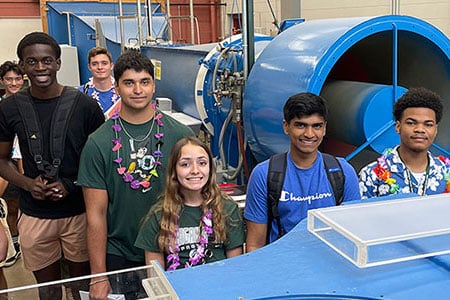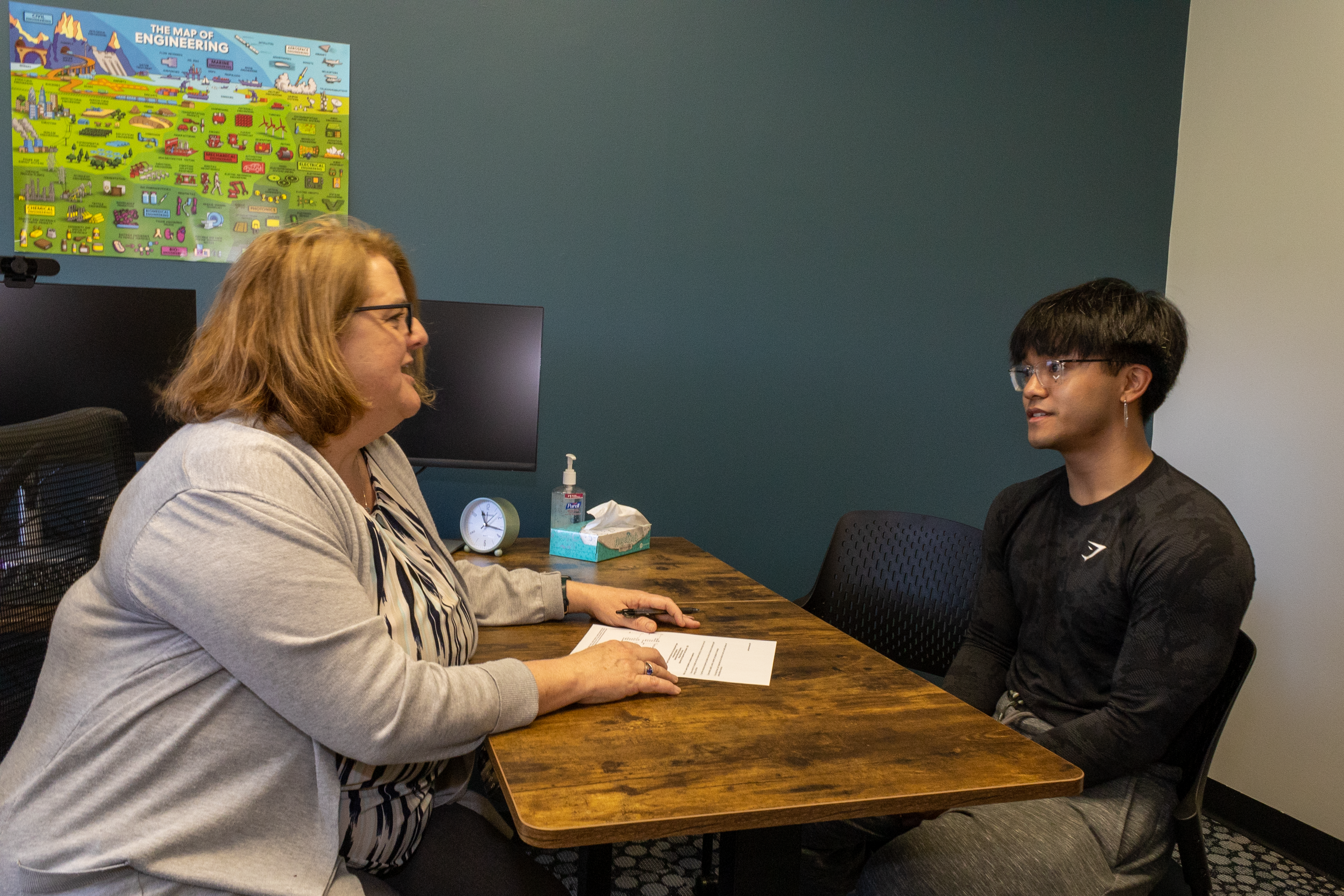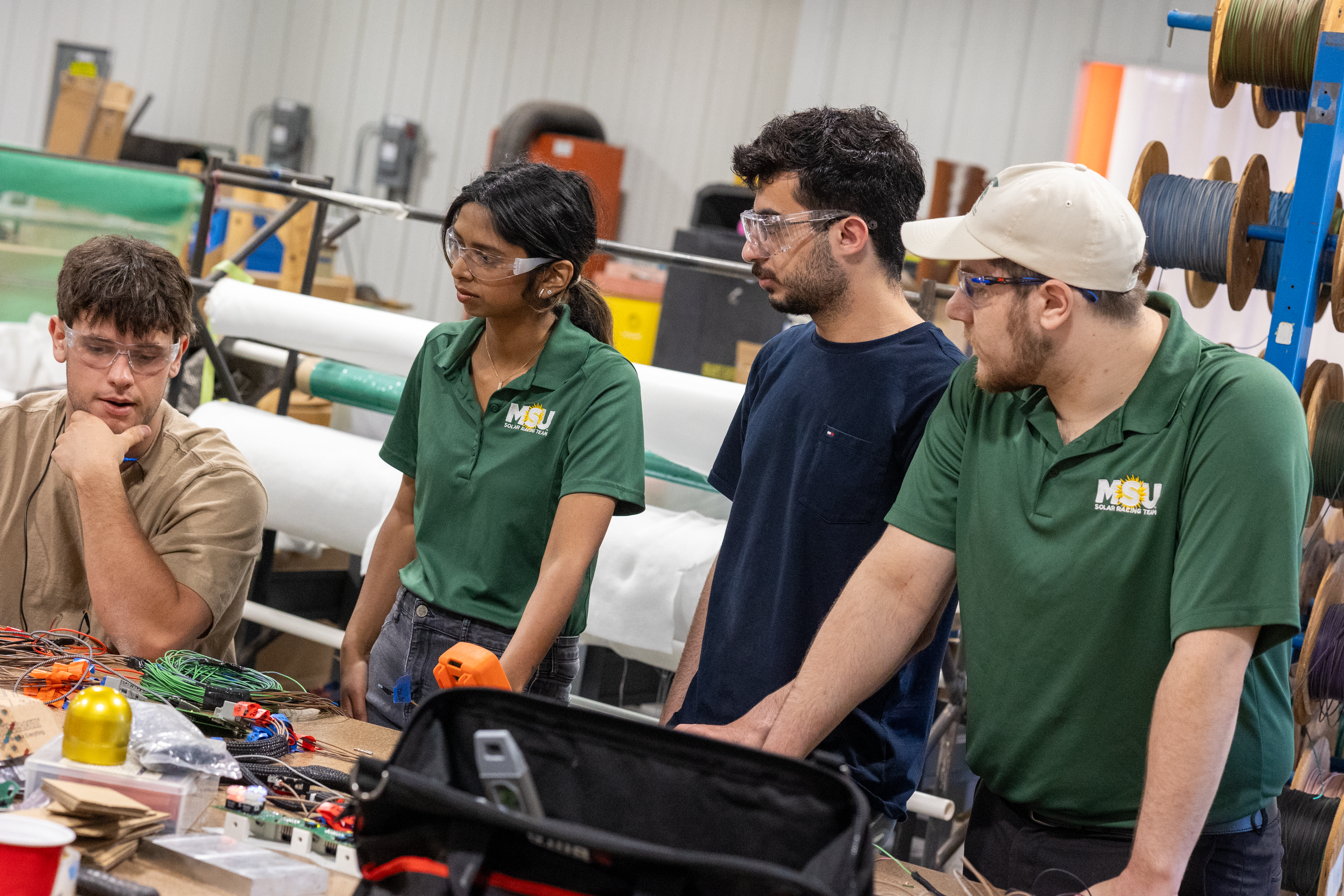Michigan's three major research universities lead the nation in preparing students who will take their talents into the ever-changing mobility industry, according to a new report by Michigan's University Research Corridor (URC).

The URC leads the nation's top university innovation clusters in preparing the greatest number of graduates for careers in the mobility industry - 14,824 total, more than university clusters in California, Texas and Massachusetts. It also prepares more than 46 percent of Michigan graduates who hold degrees in high demand by the mobility industry, such as business, computer science and engineering degrees.
"The URC is vital to securing Michigan's global position in the mobility industry and critical to its future global leadership," said URC Executive Director Britany Affolter-Caine. "The URC universities provide the talent and research that are keeping Michigan at the forefront of mobility innovation, bringing jobs and sustainable economic growth to our state."
In addition to filling the talent pipeline, the URC universities have been instrumental in conducting research and transferring innovations to the market in the mobility industry, which is working to tie together connected and automated vehicles, expanded mass transit, innovations in road construction technology and better charging infrastructure, among other changes. In addition to their own work, the universities work closely with mobility centers and businesses, including the Academic Consortium at the American Center for Mobility, a nonprofit smart mobility test center at Willow Run in Ypsilanti.

MSU has transformed its 5,300-acre campus into a live, connected ecosystem to advance smart-vehicle technology and better understand the human element. With a range of urban, suburban, industrial and rural zones, featuring nearly 60 lane miles of roads, MSU's controlled infrastructure and active campus make it ideal to test emerging technologies for new mobility solutions.
"Mobility-related research and academic offerings are a core focus at Michigan State University and across the URC," said Satish Udpa, University Distinguished Professor of Electrical and Computer Engineering and Interim Director of MSU Mobility. "The work we're doing has real-life implications for how autonomous vehicles and other new mobility technologies can help residents in Michigan and around the world lead safer, fuller lives."
In the past five years, the URC has conducted more than $542.4 million in mobility-related research and development specific to the future of mobility, including work that involves autonomous vehicles, crosswalk and curb sensors, cybersecurity, consumer experiences and the social changes new mobility technology will bring.
"Continued investment in mobility research and education will help keep Michigan a global leader in the mobility and electrification industry," said Kathryn Snorrason, Managing Director of the Office of Future Mobility and Electrification at the Michigan Economic Development Corporation. "It's clear that the URC universities' expertise and capacity for mobility research and talent development has had an impact on creating good Michigan jobs that support our local communities and align with our vision to build a stronger state economy through safer, more equitable and environmentally conscious transportation."
Read more on how the University of Michigan and Wayne State University are part of this important research partnership in a story courtesy of the URC at: https://www.urcmich.org/reports/mobility For more on mobility at MSU, visit: https://mobility.msu.edu/





